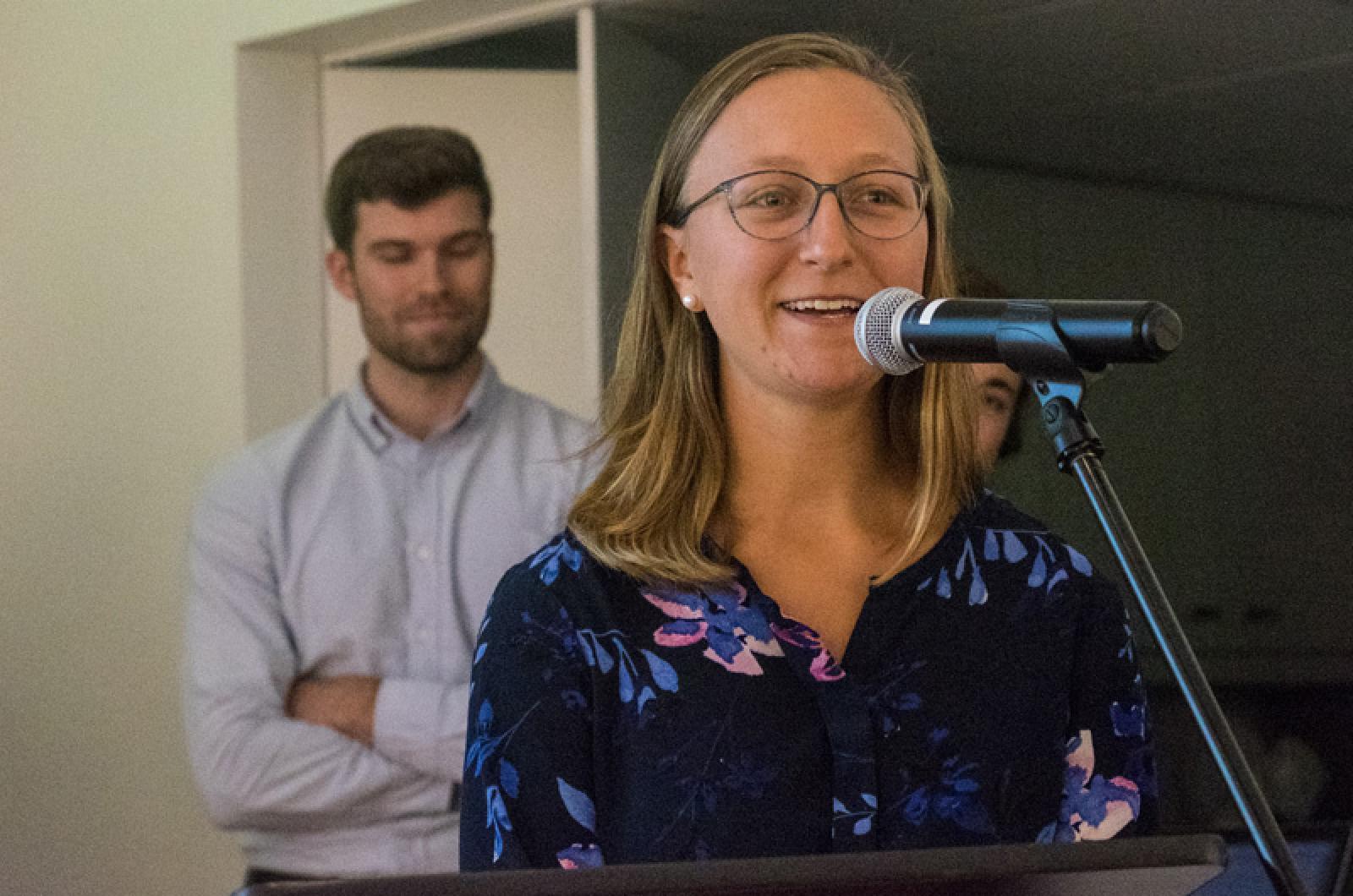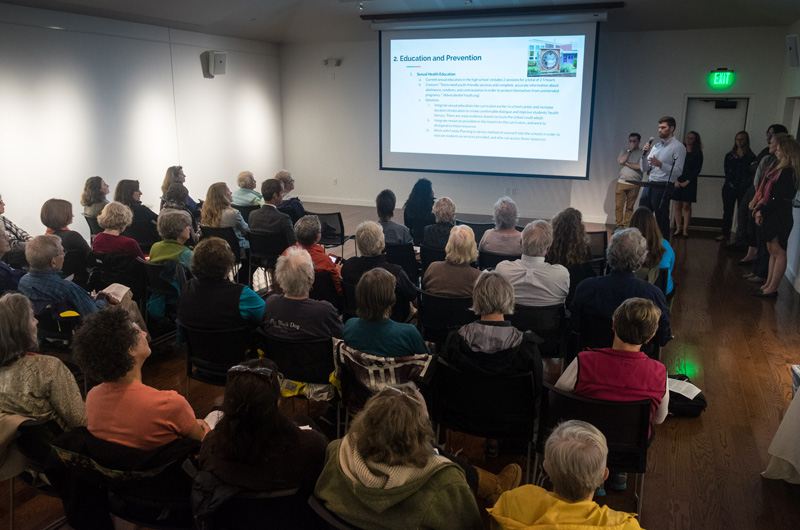Reproductive health care on the Vineyard is notably lacking in education, communication and access. This was the conclusion of eight rural scholars who recently spent two weeks on the Island studying the issue.
Eight medical and nursing students from the University of Massachusetts at Worcester presented the results of their work at the Edgartown Library Thursday.

The scholars interviewed 69 people about various topics relating to sexual and reproductive health care. They conducted in-person interviews, telephone interviews and circulated an anonymous survey to assess available services, evaluate gaps and make recommendations.
The majority of the participants were women over the age of 45. The Brazilian, Wampanoag, LGBTQA populations were underrepresented, the scholars said.
They took particular note of the lack of access to abortion on the Vineyard, and also the lack of access to primary care and dental care.
While most of those interviewed were generally familiar with Family Planning, the Island’s federally-funded reproductive health care clinic, scholars found there was little detailed knowledge about services available.
Services that prevent food insecurity, including Women, Infants and Children (WIC), a federal program, are underutilized across the Island, scholars found. This is especially true in Tisbury, where only four per cent of those eligible for WIC use it.
The scholars presented four recommendations for the Vineyard: better integration of care, improved education and prevention, improved visibility of available existing services and better outreach to vulnerable populations.
To better integrate care, the scholars recommended standardized mental health screenings for postpartum women, increased availability of translators, and improved cross communication among service providers.
“We know how easy it can be to have people work in silos because they are so focused on the population they are caring for, it’s hard to see outside of that circle and that box,” said Adam Baskin, a nursing student. “Continuity of care is really important,” he said.
The scholars said sex education is notably lacking in the Island public schools. The high school program is not meeting the needs or interest of students who were interviewed, and elementary school programs are not standardized, the scholars found.
Jesse Loughling, a medical student, said students who were interviewed reported only brief time spent in sex ed class during sophomore years. The scholars recommended an education program that begins earlier and lasts longer.
“It’s an important part of their health literacy to understand sexual and reproductive health, and students simply feel like they are not getting enough of it,” he said, noting that poor sex education can lead to higher rates of teen pregnancy, sexually transmitted infections and other issues.
The scholars also pointedly noted the shortage of primary care physicians on the Island.
“Everyone should have a primary care doctor . . . and that should be another great resource for people to go with their questions and concerns,” Dr. Loughling said.
To improve visibility, the scholars recommended a website that compiles all the reproductive health services available on Island, a reproductive health fair and integrating health education into existing events.
One long-term recommendation called for establishing a travel fund to help ease the financial burden for people seeking specialty care services not available on Island.
“We’d be interested in having a fund that’s specific to cover transportation to specialty clinics, overnight stays in distant areas, as well as ferry tickets to travel off Island for these appointments,” said Heather Patrick, a nursing student.
The scholars said a mobile van could be engaged to travel to the Island to provide screenings for people who are isolated and have trouble getting to the hospital or clinics. They said successful mobile health clinics are already operating in Massachusetts.
Scholars encouraged providers to make their offices LGBTQA friendly by displaying pride flags and symbols. They suggested using free webinars and continuing education that can help providers become culturally competent in providing safe spaces for minority groups.
“We know many LGBTQA community members look for clues about where can they get their medical care,” said Ms. Patrick.
Abortion access came up repeatedly during interviews, the scholars said.
“We think we’re in liberal Massachusetts . . . but access to abortion is a real issue this community faces,” said Cesar Rodriguez, a medical student. He said the scholars discussed among themselves how to approach recommendations on the sensitive topic.
“We came to the conclusion that . . . the law is the law and the law is women have a right to access abortion services,” he said. “It would behoove the Island to start a strong conversation about access to abortions or termination of pregnancy on Island . . . the discussion needs to happen. And it needs to be serious one. And it needs to include all members of the community.”
After a question-and-answer period, Dr. Daniel Pesch, an obstetrician/gynecologist at the hospital and chairman of rural scholars for Dukes County, said the next step is to continue discussion.
“Part of the process for this is we want to make sure there is an organization behind this, that plans this, that takes up the torch...these are all very doable things,” Dr. Pesch said. “Some of them are a reach. Some of them are going to be a little bit painful. But we have Friends of Family Planning and Health Imperatives . . . and we’re going to take this back.”








Comments (1)
Comments
Comment policy »